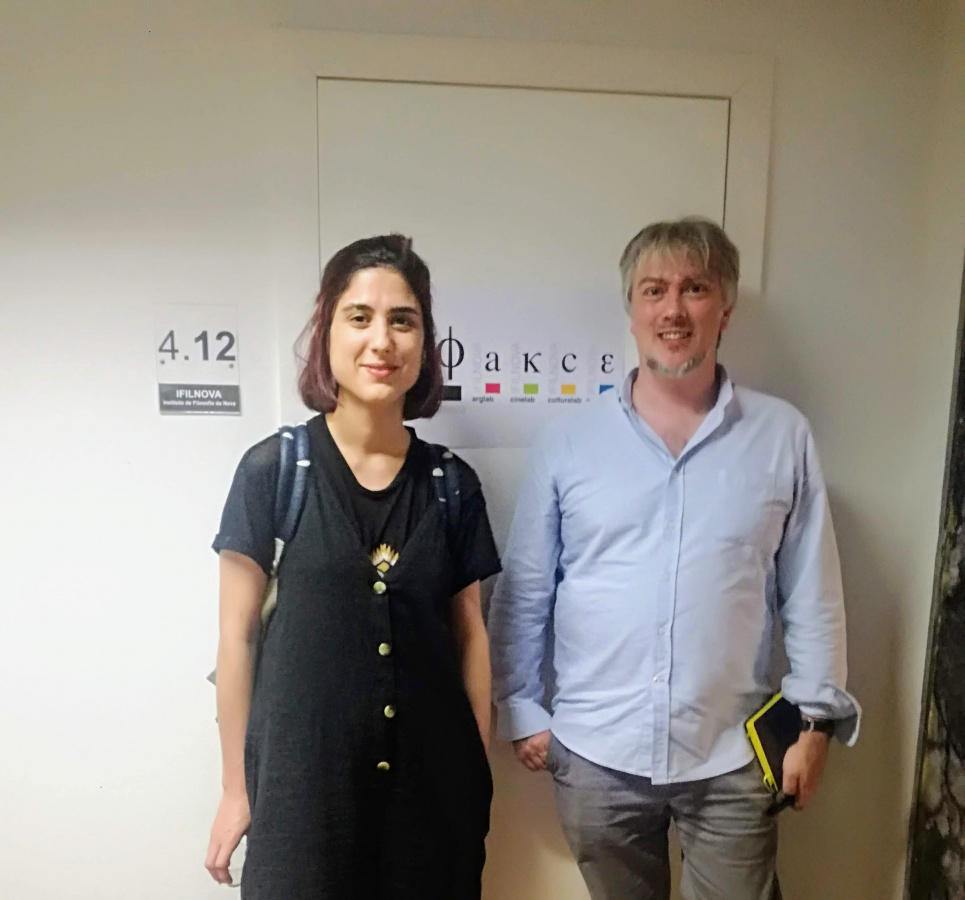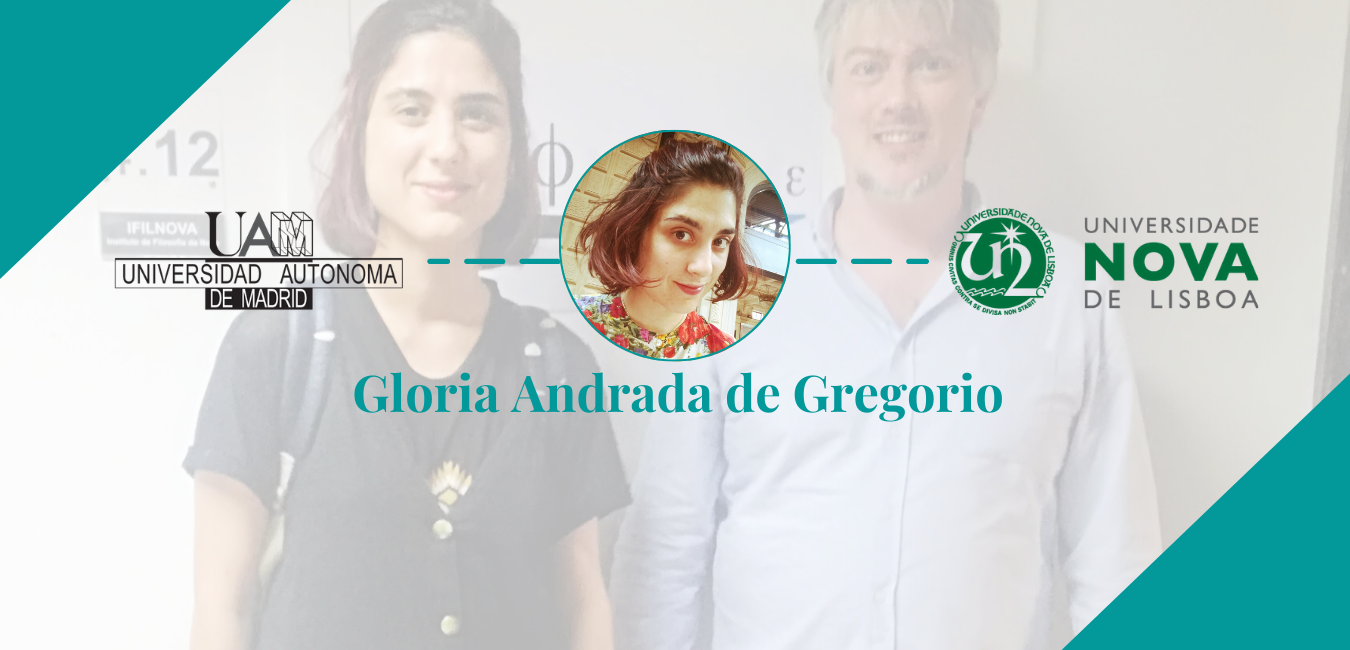Thanks to the YERUN mobility award, I have been able to work at the Lisbon Mind and Reasoning Research Group, a research group within the Reasoning and Argumentation Lab of the Nova Institute of Philosophy, under the supervision of Dr. Robert Clowes. The project I have carried out in collaboration with Robert Clowes focuses on conceptualizing the subjective dimension of internet technologies, in particular the relation between internet technologies —mainly self-tracking devices— and self-knowledge.
We constantly carry with us devices connected to the internet. This has changed the way we access and consume information and therefore has deeply transformed how we regulate and conduct our activities and projects. Given its centrality in the contemporary world, it is important to identify and conceptualize the role that the internet plays in different domains of the cognizing subject. At the Nova Institute of Philosophy I found a stimulating research environment that has contributed deeply to my research profile. Additionally, thanks to the YERUN Research Mobility Award we have begun to establish a promising research relation between the Applied Epistemology Research Group at the Autonomous University of Madrid, and the Lisbon Mind and Reasoning Research Group.

Gloria is a PhD candidate working on issues at the intersection between the philosophy of the cognitive sciences and epistemology. Before joining the Group of Applied Epistemology, she graduated in Philosophy from the Autonomous University of Madrid and obtained a Master degree in Cognitive Science and Language from the University of Barcelona. She has been a visiting PhD student at University of Edinburgh, Macquarie University and University of Glasgow. Her research focuses on understanding our nature as epistemic agents, with an emphasis on our pervasive reliance on technology and on others through technology. Her theoretical framework is the theory of Extended Cognition, according to which some of the artifacts that we interact with are, under certain circumstances, (literally) part of our cognitive processes. She is developing an account of the phenomenon of extended knowledge, and of the corresponding notion of extended knowers, that focuses on the complementary roles played by the particularities of embodied agents, the properties of technological artefacts and the socio-cultural environment in which they are embedded. Gloria is also interested in applying results on the nature of our cognitive systems to contemporary challenges in education, learning, intellectual flourishing and internet technologies.
Click here to access Gloria’s ORCID.










